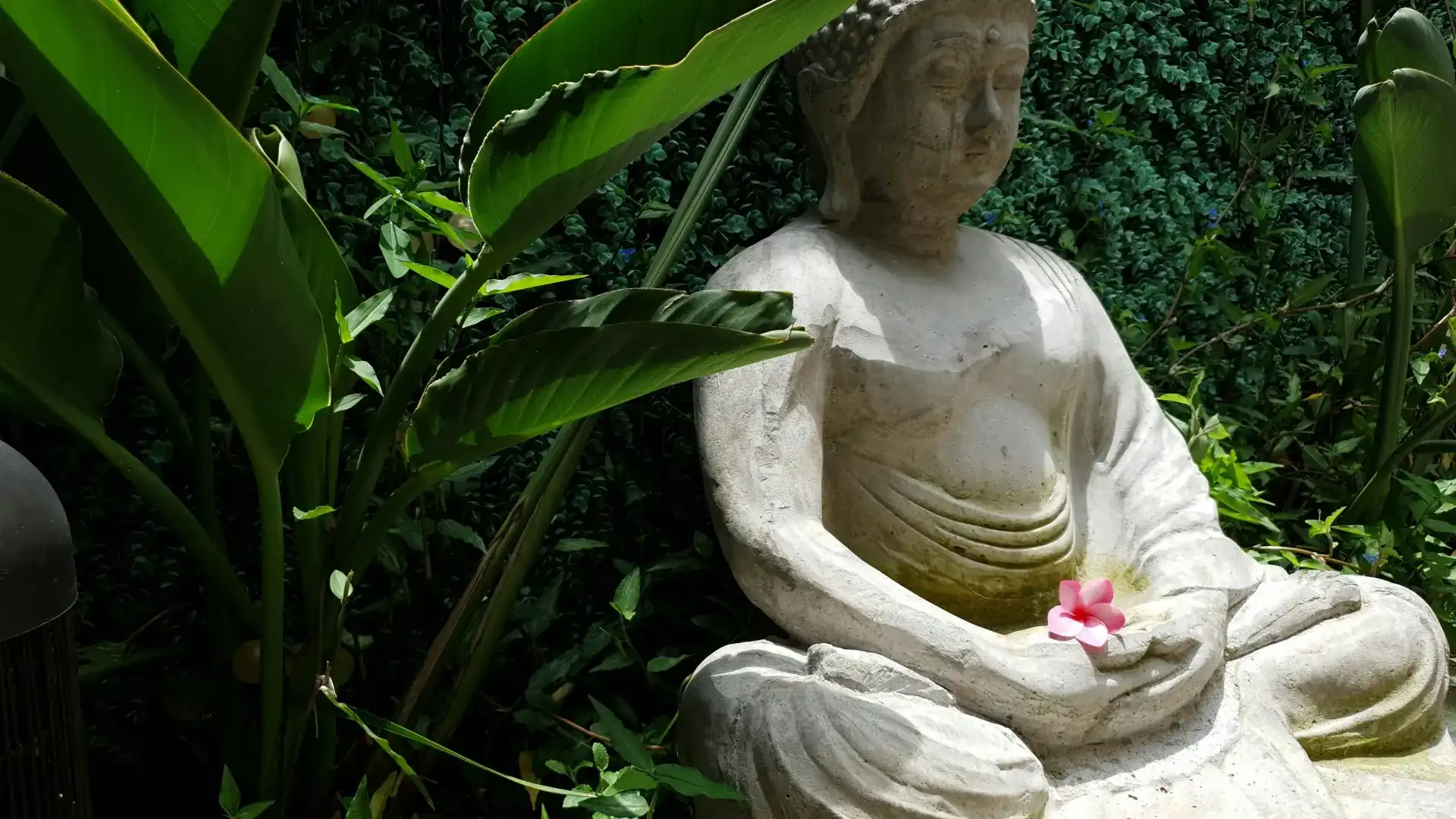Qi imbalances in Traditional Chinese Medicine (TCM) can lead to fatigue, stress, and various health issues. This guide explains how to restore balance using herbal remedies, diet, and lifestyle practices. Here’s what you’ll learn:
-
Types of Qi Imbalances:
- Qi Deficiency: Symptoms include fatigue, weak digestion, and shortness of breath.
- Qi Stagnation: Symptoms include bloating, irritability, and headaches.
-
Herbal Remedies:
- For Qi Deficiency: Ginseng, Astragalus, Codonopsis.
- For Qi Stagnation: Bupleurum, Citrus Peel, Curcuma.
-
Lifestyle Tips:
- Eat energy-boosting foods like ginger, dates, and chicken broth.
- Practice Qigong or Tai Chi to improve energy flow.
TCM focuses on balancing qi through tailored herbal treatments and holistic practices. Keep reading to explore how these methods work and how to use them effectively.
The 6 Best Herbs for Qi Deficiency and Digestive Issues
Signs and Types of Qi Imbalance
Traditional Chinese Medicine (TCM) identifies two main patterns of qi imbalance, each requiring specific herbal treatments. These patterns stem from factors like stress, lifestyle, and environmental influences.
Low Qi Symptoms
Low qi, or qi deficiency, is marked by reduced energy and weakened body functions. Common symptoms include:
- Pale, dull complexion
- Weak voice
- Poor appetite and slow digestion
A 2015 study published in the Journal of Traditional Chinese Medical Sciences found that over 80% of qi deficiency cases involved fatigue, shortness of breath, and spontaneous sweating [1]. Symptoms often worsen with activity and improve with rest.
Blocked Qi Symptoms
Qi stagnation, on the other hand, results from energy blockages rather than depletion. It can show up as:
- Migrating pain
- Chest tightness or throat constriction
- Abdominal bloating
- Emotional irritability
- Sleep disturbances
- Headaches
Unlike qi deficiency, the symptoms of stagnation tend to vary in intensity and location [4].
Organ-Related Qi Issues
Qi imbalances can also affect specific organs, each presenting its own set of symptoms:
| Organ | Type of Imbalance | Key Symptoms |
|---|---|---|
| Spleen | Qi Deficiency | Muscle weakness, sluggish digestion |
| Lung | Qi Deficiency | Shallow breathing, low immunity |
| Heart | Qi Deficiency | Palpitations, anxiety |
| Liver | Qi Stagnation | Irritability, menstrual irregularities, headaches |
| Kidney | Qi Deficiency | Lower back pain, urinary frequency, reproductive issues |
TCM focuses on these organ-specific patterns to tailor treatments. Since qi imbalances often interact through the meridian network, addressing one imbalance may influence others. This interconnected approach shapes the herbal remedies discussed in the next section [1][4].
Herbs That Address Qi Issues
Traditional Chinese Medicine (TCM) uses specific herbal remedies to target qi imbalances based on organ-related patterns. For instance, clinical trials indicate that combinations like astragalus and codonopsis are effective in addressing qi deficiency in 85% of cases[1].
Herbs for Low Qi
When the body experiences qi deficiency, tonic herbs are often recommended to strengthen various systems. Here are some commonly used options:
| Herb | Key Benefits | Recommended For |
|---|---|---|
| Ginseng (Ren Shen) | Boosts qi, enhances immunity | Supporting spleen and lung functions |
| Astragalus (Huang Qi) | Improves vitality, aids immune health | General qi replenishment |
| Codonopsis (Dang Shen) | Increases energy, aids digestion | Mild qi deficiencies |
| Atractylodes (Bai Zhu) | Supports spleen health | Digestive-related weakness |
Herbs for Blocked Qi
When qi stagnation occurs, herbs that encourage energy flow are used. These are designed to gently disperse blockages:
- Bupleurum (Chai Hu) is a go-to herb for addressing stagnant liver qi[6]. It’s frequently paired with Cyperus (Xiang Fu) for enhanced effects.
- Citrus Peel (Chen Pi) is particularly effective for easing digestive qi stagnation[2].
- For chest-related tension, Curcuma (Yu Jin) is often recommended, as it helps move both qi and blood[2].
Using TCM Herbs Effectively
The way herbs are prepared and consumed plays a big role in their effectiveness. Here’s how to get the most out of them:
-
Decoction Preparation
Simmer the herbs for 20-30 minutes before straining. This method is considered the most effective for extracting their benefits[7]. -
Dosage Recommendations
Take 2-3 servings of the strained decoction daily, preferably on an empty stomach. For chronic issues, continue this routine for 4-6 weeks, but only under the guidance of a professional[7]. -
Safety Tips
Studies highlight the importance of precautions when using herbs like ginseng and licorice root, which can affect blood pressure[8]. Always consult a TCM practitioner, especially if you have cardiovascular conditions or are on medications[8][4].
sbb-itb-4c1eb9b
Other Ways to Balance Qi
While herbs address specific imbalances, there are additional methods to help maintain overall qi balance.
Foods That Support Qi
The right foods can play a big role in keeping your qi flowing smoothly. Here's how certain foods contribute:
| Food Type | Examples | How They Help Qi |
|---|---|---|
| Warming Foods | Ginger, Cinnamon, Garlic | Promote better circulation |
| Grains for Qi | Millet, Sweet Potatoes | Improve digestion |
| Protein Sources | Chicken, Beef Bone Broth | Boost vitality |
| Energizing Fruits | Dates, Goji Berries | Increase energy levels |
Movement and Qi Flow
Practices like Qigong combine gentle movements, focused breathing, and mental clarity to clear energy blockages. These exercises specifically stimulate the meridians discussed earlier. For example, a study published in the New England Journal of Medicine found that Tai Chi reduced fibromyalgia symptoms by 44% over 12 weeks [2].
Another review of 77 studies highlighted the benefits of Qigong and similar practices, showing they improve physical function and help lower anxiety levels [2]. Specific Qigong movements can even target digestion-related meridians for better energy flow.
Taoist Insights on Qi
Taoist teachings offer timeless guidance for nurturing qi, as seen in the Book of Tao. Key principles include:
- Mindful Living: Stay present to avoid stress that drains energy.
- Natural Rhythms: Sync your daily activities with sunrise and sunset for smoother qi flow.
- Connecting with Nature: Spend time outdoors to recharge your energy.
Summary
Main Points
This guide highlights how Traditional Chinese Medicine (TCM) addresses qi imbalances through herbal remedies and lifestyle adjustments. A review of 31 clinical trials found that Chinese herbal medicine showed promise in treating qi deficiency syndrome, with 87% of studies reporting positive results [5].
Key herbs like ginseng (for severe deficiencies) and astragalus (for ongoing support) have been supported by clinical evidence [5]. Accurate diagnosis following established TCM protocols is critical for effective treatment [1].
Learn More
These practices are grounded in Taoist principles, as discussed earlier, and resources like the Book of Tao (https://bookoftao.com) provide insights into these ideas. Taoist teachings emphasize balance and natural rhythms, which align closely with TCM's focus on maintaining healthy qi flow [3].
In China, 60% of adults integrate TCM treatments, including herbal remedies, into their healthcare routines [9]. These remedies are most effective when paired with the lifestyle practices outlined earlier [1][9].
FAQs
What herbs help with Qi deficiency?
Several herbs are commonly used to address Qi deficiency:
- Ginseng (Ren Shen) is often recommended for severe cases, especially when immediate support is needed [1][4].
- Astragalus (Huang Qi) is ideal for long-term support, known for boosting the immune system and supporting Qi. Research from Beijing University of Chinese Medicine (2022) found that taking a 3g daily extract reduced fatigue symptoms by 65%.
- Codonopsis (Dang Shen) serves as a milder alternative to ginseng, suitable for less severe cases [1][4]. Dosage typically ranges from 1-30g of dried root, depending on the severity of symptoms.
For organ-specific recommendations, check the Herbs for Low Qi table mentioned earlier. Additionally, studies show that combining these herbs with dietary adjustments can improve digestive function by 40% [4]. Be sure to follow proper preparation methods and consult a professional for the best results.






